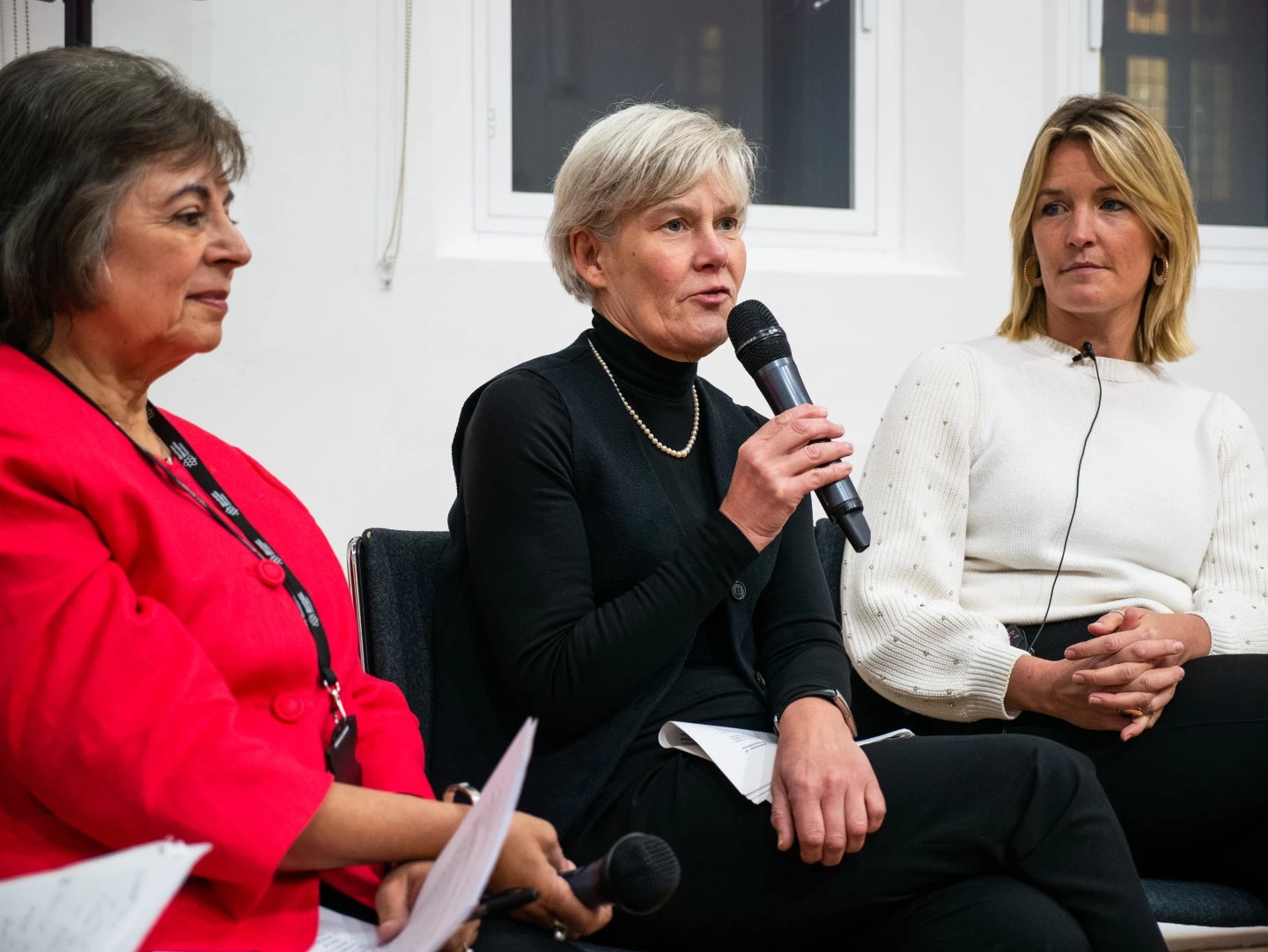Esteemed criminologist Lady Edwina Grosvenor leads debate on UK prison crisis

How can we solve the UK’s prison overcrowding problem? What’s the future for offender rehabilitation? And how can we keep more women and children out of prison? These and other topical questions were addressed by leading justice system reformer Lady Edwina Grosvenor at a public lecture and Q&A at Manchester Met.
Speaking about her pioneering work within the prison sector, including support for female offenders through her charity One Small Thing, Lady Edwina took part in a discussion with university academics and the deputy mayor Kate Green on the future of the UK prison system, which is currently facing unprecedented capacity pressure.
Lady Edwina addressed sociologists, alumni, sector professionals and members of the public in a thought-provoking discussion on solutions to the UK prison overcrowding problem, including accounts of how One Small Thing aims to redesign the justice system for women and their children.
Speaking about the increase in drugs, violence and mental health issues in prisons, as well as the fact that prisons are currently at 170% capacity with staff shortages and retention an ongoing problem, she said: “Prisons shouldn’t be places of suicides and self-harm.”
Engaging in a panel discussion with Manchester Met’s Professor of Gender, Equalities and Communities Khatidja Chantler and Professor of Criminology and Youth Justice Hannah Smithson, she offered potential solutions to the overcapacity problem, including a justice system that can recognise, understand, and respond to trauma.
This approach reflects the aims of Manchester Met’s research into youth offending, to which Professor Hannah Smithson attested in her account of work with justice involved children to understand their views and opinions.
This research from the University’s Manchester Centre for Youth Justice has led to a requirement to listen to the voices of young people being embedded into all Greater Manchester’s youth justice plans.
Lady Edwina’s particular interest in working with justice involved women through her supportive residential community Hope Street was discussed with Professor Khatidja Chantler who spoke about her research into gender-based violence, which is intrinsically linked with women and the justice system.
With a recent focus on domestic homicide and reviews into whether there were missed opportunities to prevent homicides, Prof Chantler described how the University’s research into gender-based violence is helping to inform domestic abuse policy.
Professor Hannah Smithson said: “It was a pleasure to welcome Lady Edwina to the University to discuss this important and urgent issue. The lecture shone a much-needed light on the experiences of women and girls in the criminal justice system.
“Girls under the age of 18 are currently being held in boys’ custodial establishments. The system cannot continue to overlook them and their needs simply because they don’t know what to do them.”
The event in the University’s newly refurbished Holden Gallery was hosted by the School of Sociology and Criminology and marked the institution’s 200th year anniversary, which this month is focusing on its work tackling inequalities.
It also continued the Grosvenor family’s long-held links with the University, following Lady Edwina’s late father Gerald Grosvenor, the 6th Duke of Westminster’s, role as the first Chancellor of Manchester Met from 1992 to 2005.
In July, Lady Edwina visited Manchester Met to take part in its International Crime and Justice Film Festival, choosing powerful film The Accused and engaging in a Q&A about women, trauma and social justice.
Earlier this year she also met Manchester Met Sociology and Criminology BA and BSc (Hons) students, giving them a personal tour of Hope Street, One Small Thing’s residential community for women and their children experiencing the justice system.







